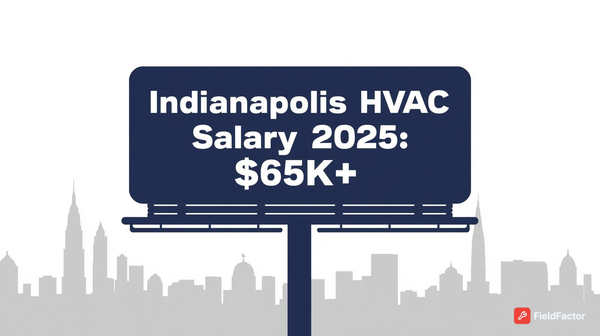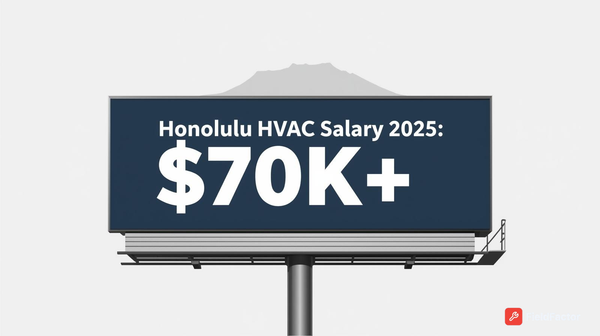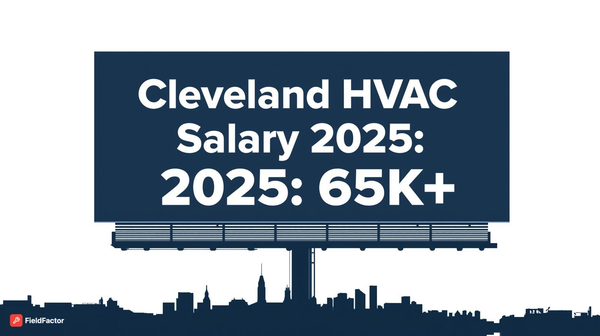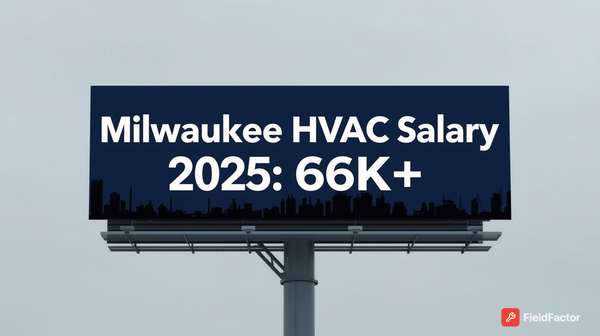Stop Lighting Leads on Fire: The 8-Minute Close Script for 70%+ HVAC Call-to-Booking Rates
Is your HVAC booking rate stuck at 40%? Implement the 8-Minute Close script, master 3 key objections, and train your CSRs for a professional 70%+ conversion rate.
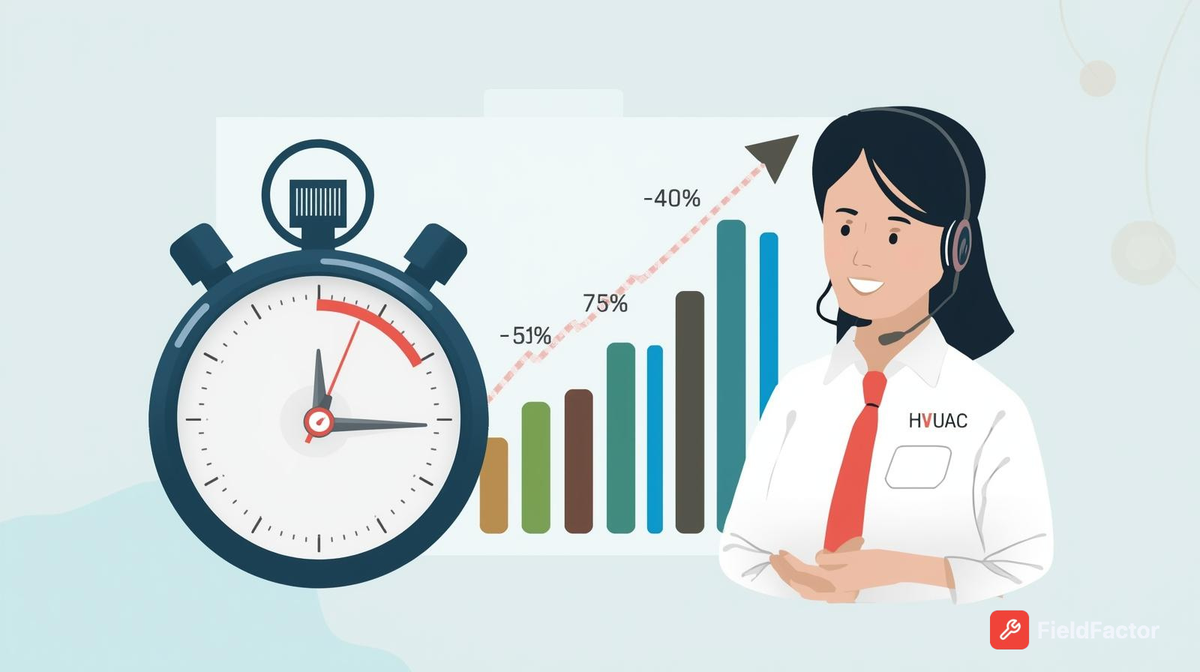
You just spent $50-$150 on a high-intent lead from Google LSA or PPC. Then, your dispatcher or CSR failed to book the call.
Sound familiar? For most HVAC businesses, the biggest marketing bottleneck isn't lead generation—it's lead conversion. A 40% call-to-booking rate is industry average, but it means you're lighting 6 out of every 10 leads on fire.
We're shifting the conversion needle. This comprehensive guide, built on the Expertise, Authoritativeness, and Trustworthiness (E-A-T) principles of efficient trade operations, details the strategies, scripts, and training required to implement the 8-Minute Close and raise your booking rate to 70% or higher.
This isn't about being pushy; it's about being professional, prepared, and authoritative.
Section 1: The High-Stakes Math of Conversion
To establish the Expertise (E), we must first prove the financial impact of poor call handling.
The Conversion Rate Cost Analysis
Let's assume a moderate HVAC business handles 100 paid service leads per month, with an Average Job Value (AJV) of $350.
| Metric | Industry Average (40% Conversion) | 8-Minute Close Goal (75% Conversion) |
| Total Paid Leads (Monthly) | 100 | 100 |
| Booked Jobs | 40 | 75 |
| Lost Leads (Leads Wasted) | 60 | 25 |
| Total Monthly Revenue from Paid Leads (AJV $350) | $14,000 | $26,250 |
| Revenue Difference (Per Month) | — | +$12,250 |
$$\text{Value of a 1\% Conversion Increase} = \frac{\text{AJV} \times \text{Total Leads}}{\text{100}}$$$$\text{Value} \approx \$350 \times 1 = \mathbf{\$350 \text{ per month}}$$
The Takeaway: Moving from 40% to 75% conversion is equivalent to finding a new, high-performing lead channel without spending an extra dime on marketing. This is the highest ROI activity in your business.
Section 2: Building the 8-Minute Close Script (E-A-T: Expertise)
The goal is to move the caller from inquiry to booked appointment in under eight minutes. The script must be a diagnostic tool, not a monologue.
The 4 Pillars of the High-Conversion HVAC Script
| Pillar | Time Allocation | Goal & Key Phrases | E-A-T Principle |
| 1. The Professional Open | 0:00 - 0:45 | Build Trust. Use a clear company name, CSR name, and a confident "How can I help you with your HVAC needs today?" | Trustworthiness (T) |
| 2. Pain Point Diagnosis | 0:45 - 3:00 | Establish Expertise. Ask open-ended questions to qualify the urgency and the issue. e.g., "I understand the A/C is out. When was your last service? Is it blowing warm air, or is the unit completely silent?" | Expertise (E) |
| 3. The Solution & Value Prop | 3:00 - 6:00 | Set Expectations. Offer a clear, confident solution, before discussing price. e.g., "Based on that, we need to get a certified tech out for a full diagnostic. We have a crew in your area right now, which is why I can offer you a time slot at 2 PM today." | Authoritativeness (A) |
| 4. The Confident Close | 6:00 - 8:00 | Book It. Use two clear closing options to manage the schedule. e.g., "I can secure that 2 PM slot, or we have an opening tomorrow morning at 9 AM. Which works better for you?" (The either/or close). | Expertise (E) |
🛑 Script Red Flag: NEVER Start with Price
A primary script mistake is giving a price estimate immediately. This turns your CSR into a glorified directory listing. Use price as a bridge, not a wall.
- Bad Response: "A diagnostic is $89." (Invites comparison shopping)
- 8-Minute Close Response: "For a complex diagnosis like that, we send out a NATE-certified Master Technician who guarantees a fix the same day. The dispatch and full diagnostic fee is $\mathbf{\$89}$, and that fee is waived if you proceed with the repair. Does this afternoon work for you?" (Value and close first).
Section 3: Mastering the Top 3 Objection Handlers (E-A-T: Authoritativeness)
High-conversion CSRs see objections as requests for more information, not reasons to end the call. Training your team on these three core objections is non-negotiable.
1. Objection: "I need to call around for a better price."
| Response Strategy | Script Element | E-A-T Goal |
| Acknowledge & Reframe | "I completely understand you need to be budget-conscious. Before you hang up, let me briefly explain why we can’t be the cheapest." | Validate the customer's choice to call you. |
| Value Stack | "Our trucks are fully stocked with over 500 parts, meaning 95% of repairs are completed in a single visit. We only use NATE-certified techs, and every repair is backed by our Iron-Clad 1-Year Guarantee." | Justify your price with quality and reliability (Trust). |
| The Urgency Close | "My system is showing a 2 PM slot open in your area right now. Would you like me to secure that slot for you while you check availability with others? You can always cancel later." | Create soft pressure; book the slot. |
2. Objection: "I just need a rough estimate over the phone."
- Response: "I wish I could give you an exact price, but it wouldn't be fair to you. Giving a rough estimate often leads to a surprise bill because the problem is rarely just the one simple part. Our technician can give you an exact, fixed price quote before any work begins, so you know exactly what you’re paying. To get that exact price, should I book you for the 2 PM or the 4 PM slot?"
3. Objection: "Are you licensed and insured?" (Trust Check)
- Response: "Absolutely, that's a great question to ask. We are fully licensed, bonded, and insured in [City/State Name]. In fact, we've been serving the [Local Area] community for 15 years and are backed by the Google Guarantee. You can view all our credentials on our website or our Google Business Profile. Let's get your service booked now." (Direct, confident, and uses E-A-T social proof.)
Section 4: Training & Accountability - The System (E-A-T: Trustworthiness)
A script is useless without systemized training and accountability. This is how high-performance HVAC companies maintain their 70%+ conversion rate.
Step 1: Call Recording and Review
- The Gold Standard: Every inbound and outbound call must be recorded and archived.
- The Review Cycle: CSR Managers must review 10-15 random calls per week using a standardized scorecard (see chart below). Focus on coaching, not criticizing.
Step 2: The Conversion Scorecard
Use this simple table to track and score performance. CSR bonuses should be tied to this metric.
| Scorecard Metric | Goal | Score (1-5) | Notes |
| Professional Open | Clear name/company name/greeting. | ||
| Pain Qualification | Asked 2+ open-ended diagnostic questions. | ||
| Value Statement | Mentioned NATE/Guarantee/Stocked Truck. | ||
| Objection Handling | Used an E-A-T-approved reframe/close. | ||
| Did They Close? | Yes/No (The ultimate metric). | ||
| Total Call Time | $<8$ Minutes |
Step 3: Role-Playing and Script Evolution
- Daily Huddle: Start each day with a 10-minute role-playing session. Present a tough objection and have CSRs work through it.
- Script as a Living Document: If the team hears a new, consistent objection, document it, write a strong response, and add it to the script immediately. This keeps your response authoritative and current.
Conclusion: Stop Buying Leads, Start Booking Them
The most cost-effective way to grow your HVAC business is not by spending more on marketing, but by maximizing the revenue from the leads you already own.
The 8-Minute Close system transforms your office staff from order-takers into the highest-leverage sales team in your organization, dramatically lowering your CAC and turning your lead budget into profit. Invest in the training, implement the script, and start tracking your way to a 70%+ booking rate today.


